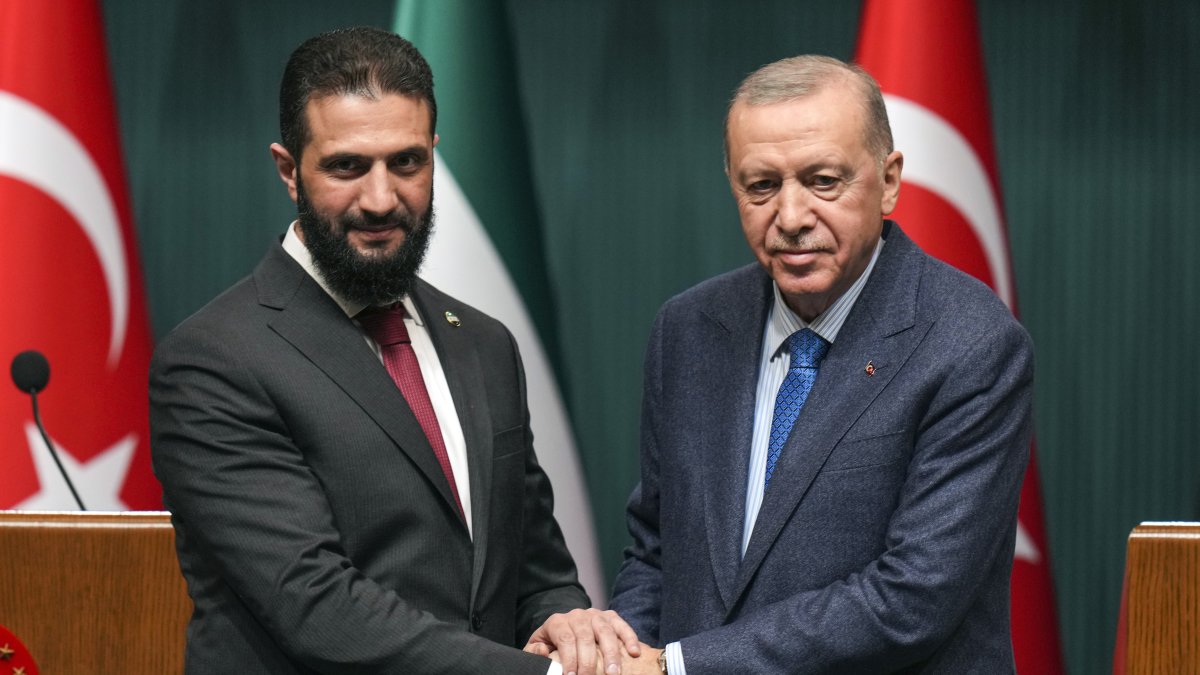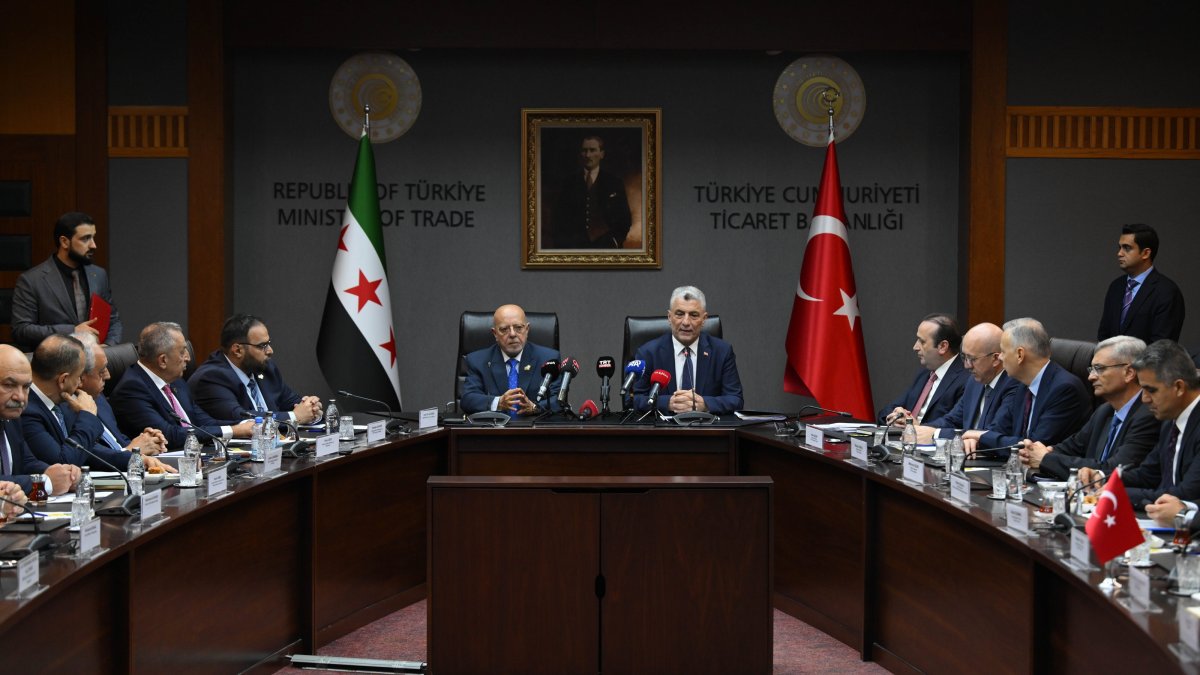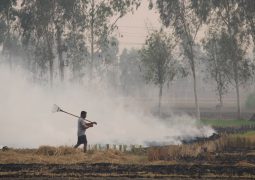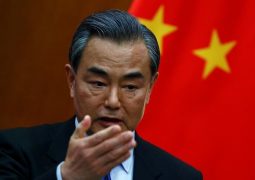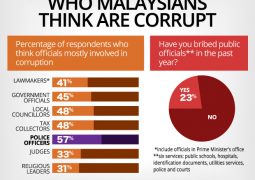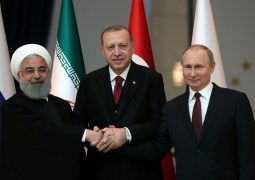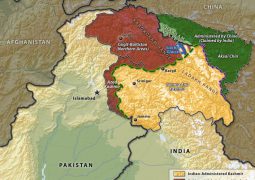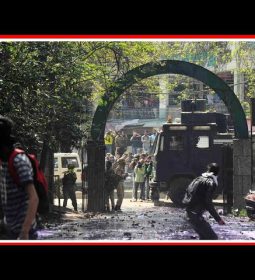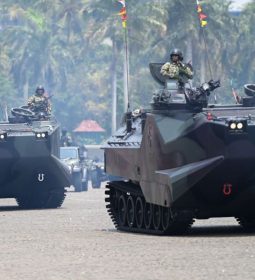Turks play “master-servant” playbook policy with its islamist puppet regime in Syria

Türkiye aids Syria with military training, defense tech and joint counterterrorism efforts
Recently, sources from the Turkish Ministry of National Defense announced that the current Syrian administration had submitted an official request seeking Türkiye’s support to enhance its defense capacity and intensify its fight against terrorist organizations. It is now evident that Türkiye’s role in ensuring and implementing Syria’s security will go far beyond border protection. In the aftermath of a 13-year civil war, Türkiye is poised to become a central security actor in the country’s stabilization process. In assessing this new role, it is essential to highlight three critical missions Türkiye is expected to undertake.
First and foremost, priority will be given to strengthening Syria’s weakened and war-torn security institutions, both quantitatively and qualitatively. Drawing on its undisputed experience in reinforcing the armed forces and security institutions of countries such as Qatar, Libya, Somalia and Iraq (through NATO missions), Türkiye will likely emerge as a key provider of military and technical assistance in Syria. This includes providing strategic advisory support, modernizing existing equipment and equipping the Syrian Armed Forces with modern military doctrines and training.
Secondly, the development of joint counterterrorism mechanisms will constitute a vital area of cooperation between Türkiye and Syria. The quadrilateral mechanism established among Türkiye, Syria, Iraq and Jordan to combat Daesh is expected to deepen further, both in field operations and intelligence coordination, especially between Türkiye and Syria.
Another critical mission for Türkiye is expected to be its role in facilitating Syria’s political normalization and the restoration of state authority. The Druze issue clearly illustrates how every internal challenge to public order and stability creates a vacuum that foreign actors, such as Israel, can exploit to foment internal unrest, further undermining nationwide stability. Türkiye is well-positioned to play a constructive, facilitating and potentially mediating role in areas such as the integration of territories under SDF administration into the authority of Damascus and the alignment of ethnic and religious groups within the framework of national territorial integrity. This role should not be limited solely to internal actors; Türkiye’s political influence in Western, Eurasian and Arab capitals could help break down prejudices against the Syrian regime and support its reintegration into the international arena.
Türkiye’s track record in Syria
Since the outbreak of the Syrian civil war in 2011, Türkiye has pursued a multidimensional and phased strategy toward Syria. This strategy has extended across a wide spectrum from security-oriented military operations to humanitarian aid, from diplomatic engagement to the establishment of local governance structures. Türkiye’s cross-border military interventions and its operational engagement with the Syrian National Army have enabled Ankara to secure its own borders while establishing a concrete military presence on the ground. Furthermore, internal security forces trained by Türkiye and deployed in the operation zones under Turkish protection have ensured human security in northern Syria. These units have assumed responsibilities such as incident response, maintaining public order, and performing judicial police duties.
In addition, Türkiye has established micro-level administrative structures in the areas it secured militarily. Despite the ongoing conflict, regions such as Azaz, Afrin, al-Bab, Jarablus, Tal Abyad and Ras al-Ayn have seen the implementation of infrastructure projects, urban development, municipal services, education and health care systems, social services and shelter support.
Türkiye has proven itself not only as a military actor but also as a diplomatic player capable of seeking, generating and delivering solutions. As a founding member of the Astana Process, Türkiye has represented opposition groups while serving as a guarantor of cease-fires on the ground. Its institutional dialogue with the Syrian opposition, along with its active involvement in the Sochi and Moscow agreements, played a decisive role in initiatives such as halting clashes in Idlib, declaring de-escalation zones and establishing observation posts.
As a result of these interventions, Türkiye has neutralized the terror threat along much of its border, created safe zones in areas under its control and established a legitimate and lasting military and political presence on the ground, earning it a seat at the diplomatic table. All of this demonstrates that Türkiye’s current offer of security and stabilization cooperation with Damascus is not merely aspirational but is backed by proven capacity and experience in the field.
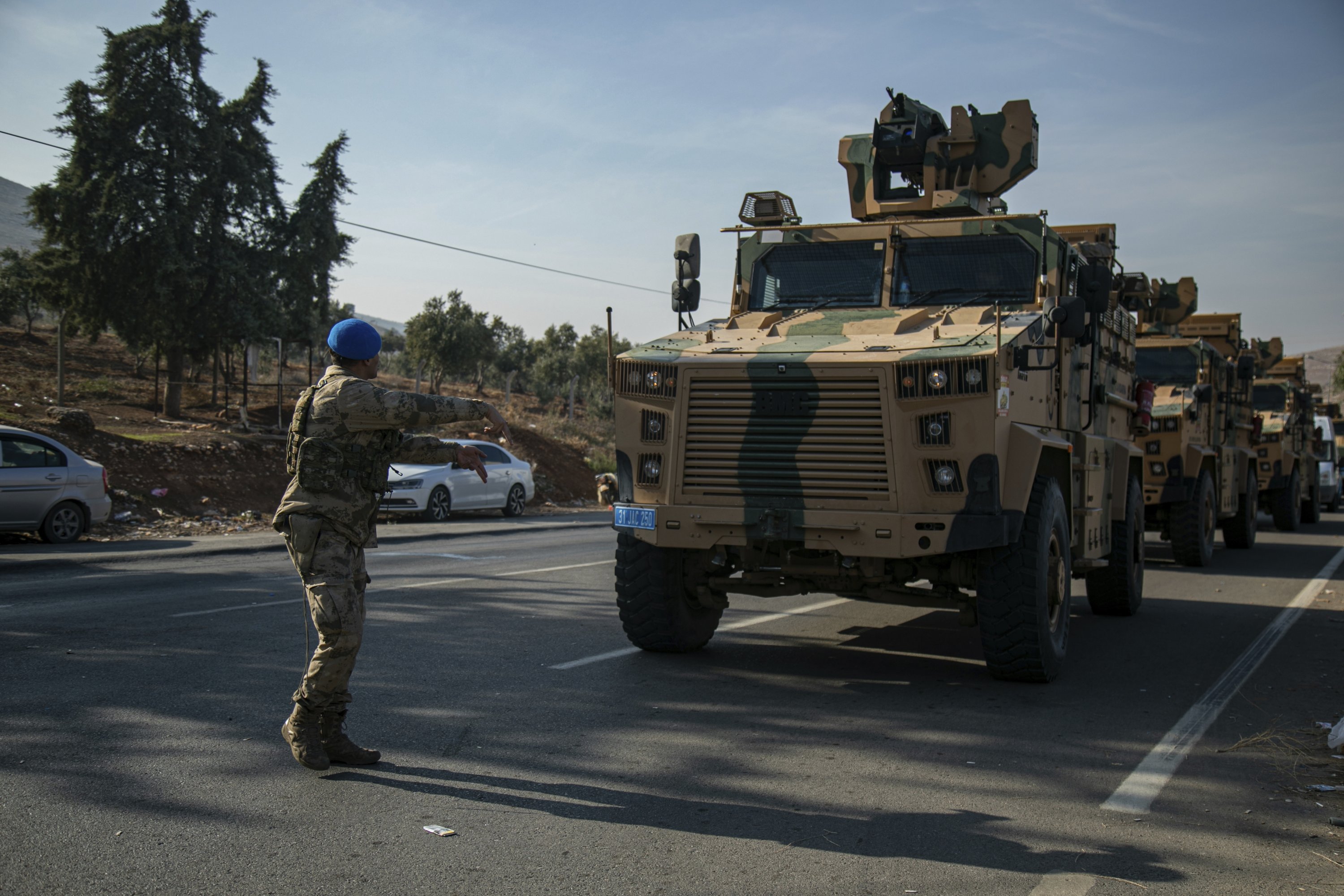
Military capacity transfer
The ongoing absence of political normalization and the persistence of a fragmented political structure in Syria, along with the failure to unify the armed forces, the continued existence of irregular armed groups, terrorist threats, Israeli aggression, issues such as drug trafficking and smuggling, internal security risks, infrastructure deficiencies and security risks tied to human mobility, all remain pressing realities on the ground. Therefore, in evaluating Syria’s request for assistance from Türkiye, the country’s current state and its needs must be carefully considered.
Since 2016, Türkiye has developed a multidimensional defense capacity through cross-border military operations and military modernization programs. Suppose this accumulated experience is transferred to Syria at the request of the Damascus government. In that case, it will not only constitute technical support but also serve as a strategic move to recalibrate regional power balances. This military and technical capacity transfer can be examined under three main pillars.
Training, advisory capacity
One of Türkiye’s strongest areas lies in the training of operational units and the reconstruction of institutional military capacity. Military training missions conducted in Iraq, Somalia, Qatar and Libya have demonstrated Türkiye’s experience in this field. The Turkish Armed Forces (TSK) could offer the Syrian army training programs in light infantry, special forces, armored units and artillery. These would cover not only conventional combat techniques but also tactics tailored to hybrid warfare, urban combat and counterterrorism operations.
In terms of command and control, as well as institutional reform, it is well known that Syria’s existing armed forces suffer from a weak centralized command system. Türkiye can provide advisory support in establishing NATO-standard command and control structures, logistics planning, troop rotations and supply chain management.
Furthermore, in the area of military academies and officer training, Türkiye, through institutions such as the National Defense University, could help educate future Syrian officers. This would be strategically important not only for the long term professionalization of the Syrian army but also for achieving military doctrinal alignment with Türkiye.
In addition to the armed forces, the training of local police forces falls within this scope. Türkiye has taken the lead in establishing local police forces in areas such as Azaz, al-Bab, Jarablus and Afrin. A similar model could be implemented in regions now back under Damascus’s control, creating locally integrated yet centrally governed police units.
Procurement, defense industry
Türkiye’s defense industry experienced significant progress in the 2020s. This capacity is valuable not only due to its export potential but also because of its ability to transfer technology to friendly and allied countries. For Syria, Turkish-developed uncrewed aerial vehicles are a perfect design to be used against Daesh elements both along the border and in desert areas. Electronic warfare and reconnaissance systems offer asymmetric defense solutions against Israeli airstrikes, providing capabilities such as radar suppression, communication jamming and signal intelligence. Armored vehicles ensure both personnel protection and mobility in environments with asymmetric threats. Multi-barrel rocket launchers and short-range anti-tank systems act as tactical force multipliers. Air defense systems provide early warning and response capability in specific areas of Syrian airspace. Munitions and electronic systems can contribute to the modernization of the Syrian army, enabling it to come to the forefront. Türkiye possesses the competence to supply all of these platforms and systems, taking into account regional security balances, to support the enhancement of Syria’s defense capacity.
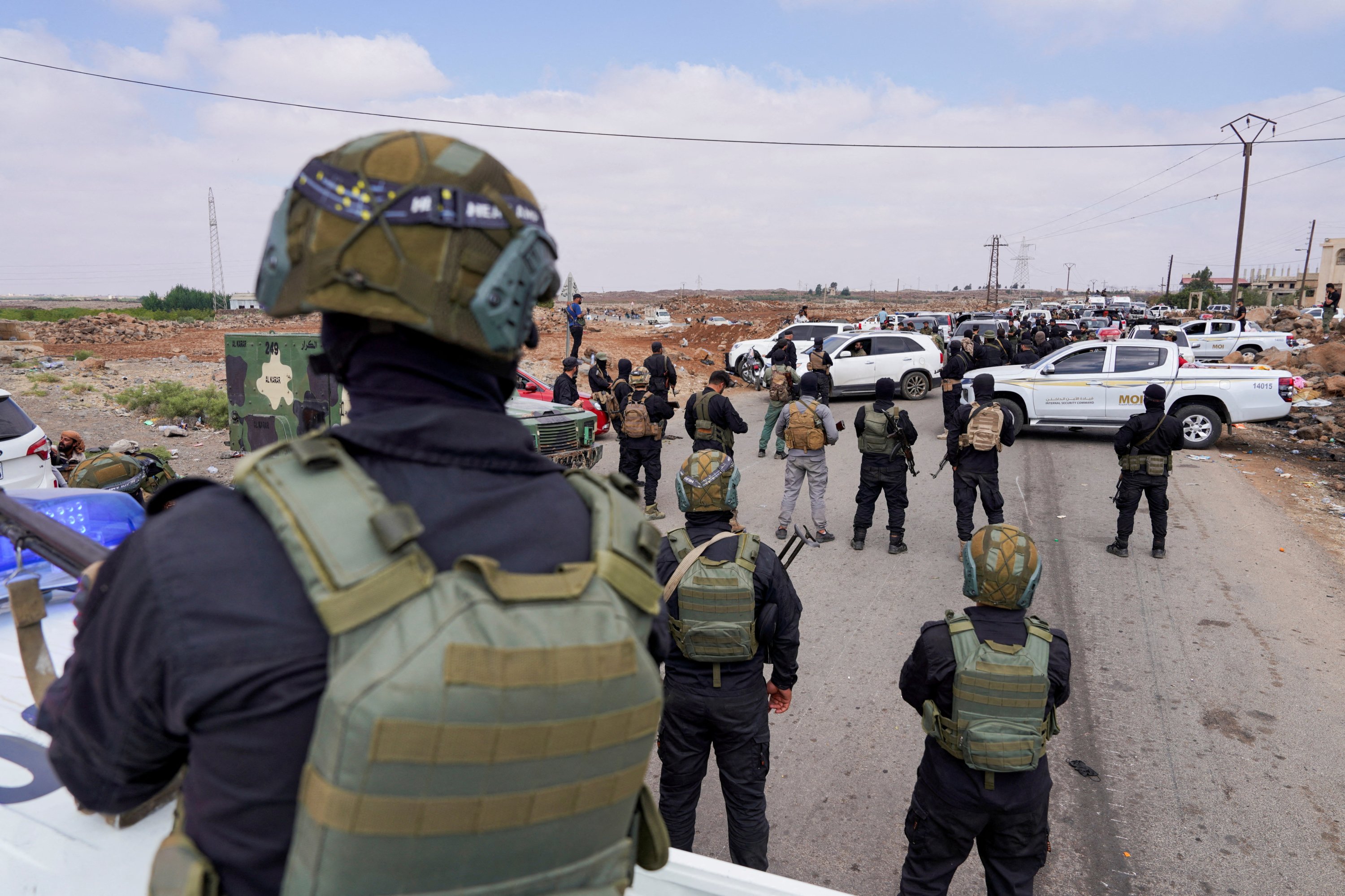
Joint operations, field coordination
The military support proposed by Türkiye does not merely include the passive provision of materials or training assistance, but also encompasses the establishment of a joint operational structure capable of conducting coordinated field operations with the Syrian army. Following the outbreak of civil war in 2011, Syria became a zone of activity for numerous terrorist organizations. Daesh wreaked havoc in the region between 2014 and 2017 and the PKK/YPG established de facto autonomy in the northeast, dismantling the country’s internal security structure. In this context, Türkiye developed an effective intelligence and operational strategy to secure its borders and eliminate regional terrorist threats. Today, Türkiye is preparing to share this experience and act jointly within the framework of formal cooperation with the Damascus administration.
Indeed, the quadrilateral mechanism involving Syria, Iraq, Jordan and Türkiye is also expected to fulfill this function. In the specific case of Syria, intelligence-sharing and the establishment of joint operations centers may be necessary to conduct intelligence-supported operations targeting remaining Daesh elements. Furthermore, Turkish Special Forces guiding elite units within the Syrian army could increase the effectiveness of targeted strikes. This tactic can be seen as an evolved and more controlled version of the support previously given to the Syrian National Army.
Such intelligence and operational cooperation would not only serve to neutralize terrorist actors but also help consolidate the sovereignty of the Damascus government, ensure the long-term security of Türkiye’s southern border, limit the influence of regional actors such as Iran and Israel and foster an atmosphere of internationally legitimate joint struggle.
Moreover, Türkiye has long pointed to the threat posed by the YPG, which forms the backbone of the SDF and maintains organic ties with the PKK. Although the Damascus administration entered into an integration process with the SDF through the March 10, 2025, agreement, control over the military wing of the organization remains a matter of controversy. Türkiye can provide technical and operational support to Damascus in the disarmament, separation and, if necessary, neutralization of these elements.
For Syria, such a transfer of capacity would provide significant momentum in rebuilding its war-torn military structure. For Türkiye, cooperating with a friendly and coordinated army beyond its southern border ensures the long-term security of its frontier. At the same time, it positions Türkiye as a legitimate and enduring actor in shaping Syria’s future. For the region, this model of support could offer a regular-army-based alternative to the proxy-based spheres of influence promoted by other powers. Thus, a new regional balance could emerge both in terms of internal stability and external influence.
Partnership based on trust
Türkiye’s emerging security role in Syria aims not only to ensure border security but also to contribute to Syria’s overall stability, the reconstruction of state capacity and the institutionalization of counterterrorism efforts. The official request by the Damascus administration for Turkish support represents a strategic turning point, granting international legitimacy to Türkiye’s presence on the ground.
For Syria, this process signifies the reestablishment of state authority and the restoration of functioning public services. At the same time, for Türkiye, it offers the opportunity to position itself as a cross-border actor in order-building.
In conclusion, Türkiye’s new security role encompasses military power on the ground, diplomatic facilitation at the negotiation table, cooperation in public order and reconstruction at the local level. This multidimensional approach holds the potential to generate a lasting impact not only for Syria but for the stability of the entire region.
Turkish banks are preparing to launch operations in Syria in the near future, Trade Minister Ömer Bolat said Tuesday, as Türkiye adds momentum to efforts to help its neighbor recover its war-torn economy.
Bolat also emphasized the growing pace in talks aimed at involving Turkish contractors in Syria’s rebuilding process.
He was speaking alongside Syrian Economy and Industry Minister Mohammad Nidal al-Shaar at the signing ceremony of the founding protocol of the Türkiye-Syria Joint Economic and Trade Committee (JETCO) in Ankara.
Ankara, which supported opposition forces in Syria throughout the 13-year civil war that ended in December with the ousting of longtime dictator Bashar Assad, has now become one of the new government’s main foreign allies while positioning itself to be a major player in the country’s reconstruction.
“Turkish and Syrian businesspeople are coming together today and tomorrow under the coordination of TOBB and DEIK,” Bolat said, referring to the Union of Chambers and Commodity Exchanges of Türkiye and the Foreign Economic Relations Board.
“The Türkiye-Syria Business Council is being reestablished, and its founding agreement will be signed tomorrow between Turkish and Syrian institutions at DEIK,” he noted.
Bolat said preparations are underway for Turkish financial institutions to enter the Syrian market. “Our banks are also preparing to begin operations in Syria in the short term,” he added.
His announcement comes days after representatives from Türkiye’s Treasury and banking sector reportedly met with Syrian officials in Damascus to explore potential cooperation in banking, insurance and public finance.
Before the Syrian civil war, Türkiye’s largest lender, Ziraat Bank, had been in talks to establish a bank in Syria with a local partner in 2010, but those plans were suspended with the onset of the conflict. Currently, no Turkish banks operate in Syria.
Following the ousting of Assad, Ziraat Bank General Manager Alpaslan Çakar had told Reuters that the bank would be ready to take on responsibility in Syria if conditions allowed.
Broader reconstruction-focused talks are ongoing between Türkiye and the Syrian interim government, particularly in sectors such as energy and infrastructure, as part of efforts to stabilize and rebuild the country.
“Turkish entrepreneurs led by contractors are eager to play an active role in the reconstruction of Syria, including infrastructure, superstructure and social housing,” Bolat said. “Discussions between business communities and contractors from both countries are accelerating.”
Speaking at a separate meeting following the ceremony, Bolat said they were taking modernization steps to facilitate border crossings with Syria, accelerate trade and enhance security.
He said Türkiye is ready to make the strongest contributions to Syria’s recovery, expressing belief that Turkish companies, with their expertise and experience in manufacturing, infrastructure, banking and construction, will take the lead in Syria.
“Our firms are ready to undertake Syria’s transportation infrastructure and rebuilding projects, especially those involving public-private partnerships and build-operate-transfer models,” Bolat said.
The JETCO meetings, which Bolat said will now be held at regular intervals, will bring together the business communities of both countries on an institutional platform. He also emphasized that they are ready to begin negotiations to establish a comprehensive economic partnership agreement between the two nations.
Regarding his meeting with al-Shaar, Bolat noted that they discussed customs regime practices and transportation activities in detail.
“From now on, our trucks will no longer need to transfer cargo or swap trailers at the Syrian border. In the coming period, Aleppo will become a strong logistics hub. Syria’s transportation corridors will be reactivated. We are entering a new era where transit transport to Gulf countries will resume, and both our countries will benefit from emerging areas of cooperation in trade,” he said.
“We approach our customs collaboration with the same strategic vision, taking modernization steps that ease border crossings, speed up trade and enhance security, and we are improving the customs gates opening to Syria.”
Bolat also drew attention to the importance of the energy-related step and noted Saturday’s launch of gas exports to Syria.
Deliveries of Azerbaijan’s gas through Türkiye are expected to reach around 6 million cubic metres (mcm) per day. The current delivery plan foresees exports of 1.2 billion cubic meters annually. Türkiye said there was potential to supply up to 2 bcm per year in the first phase.
The gas will be used to restart power plants in Syria with a combined capacity of 1,200 megawatts.
The Türkiye-Syria Natural Gas Pipeline will meet the electricity needs of 5 million households, said Bolat, stressing the will to further develop cooperation with joint energy and power plant projects in the period ahead.
- Previous Massive and Frequent Forest fires rages are new normal for Turkey from now on
- Next Ukrianian industry and infructructure “evaporates” under the “Geran” drone attacs: Russian multiplied and modernized Iranian designed “Shahed-136” drones


